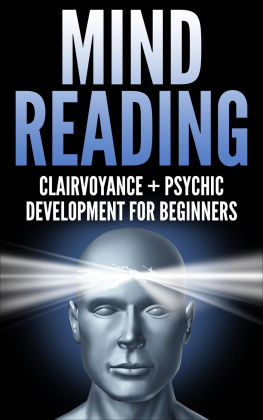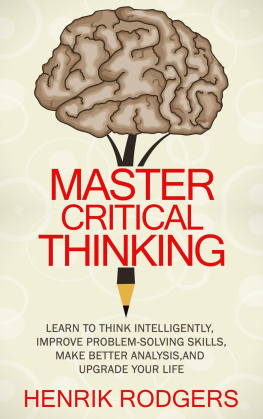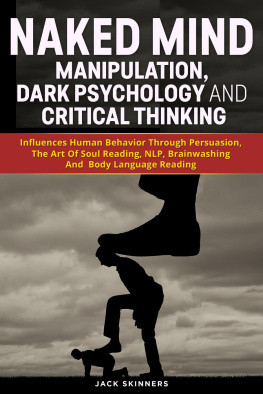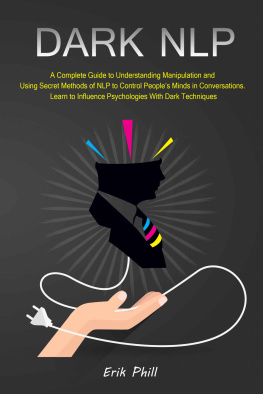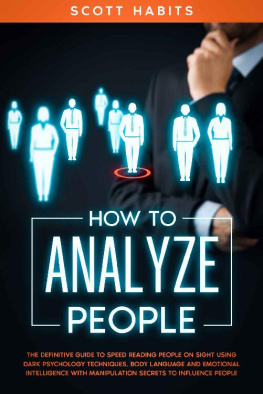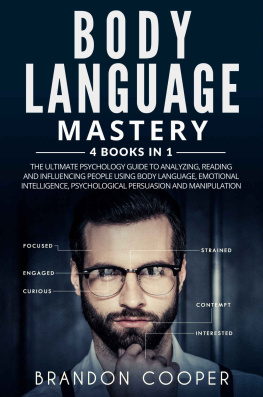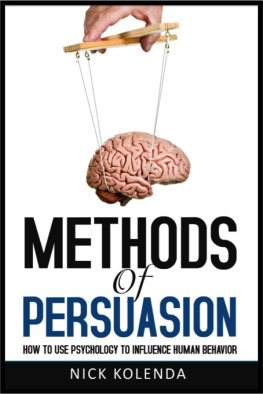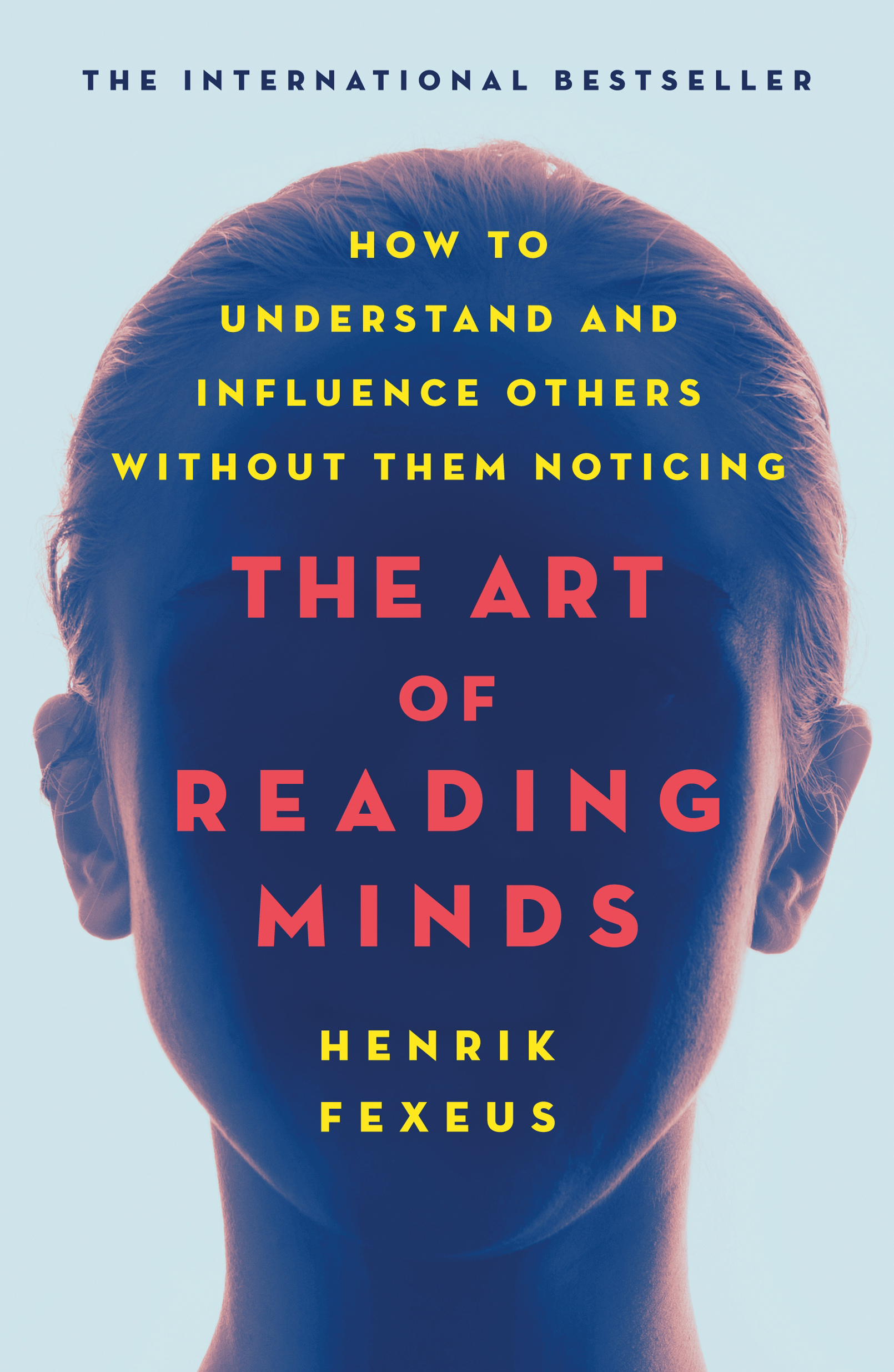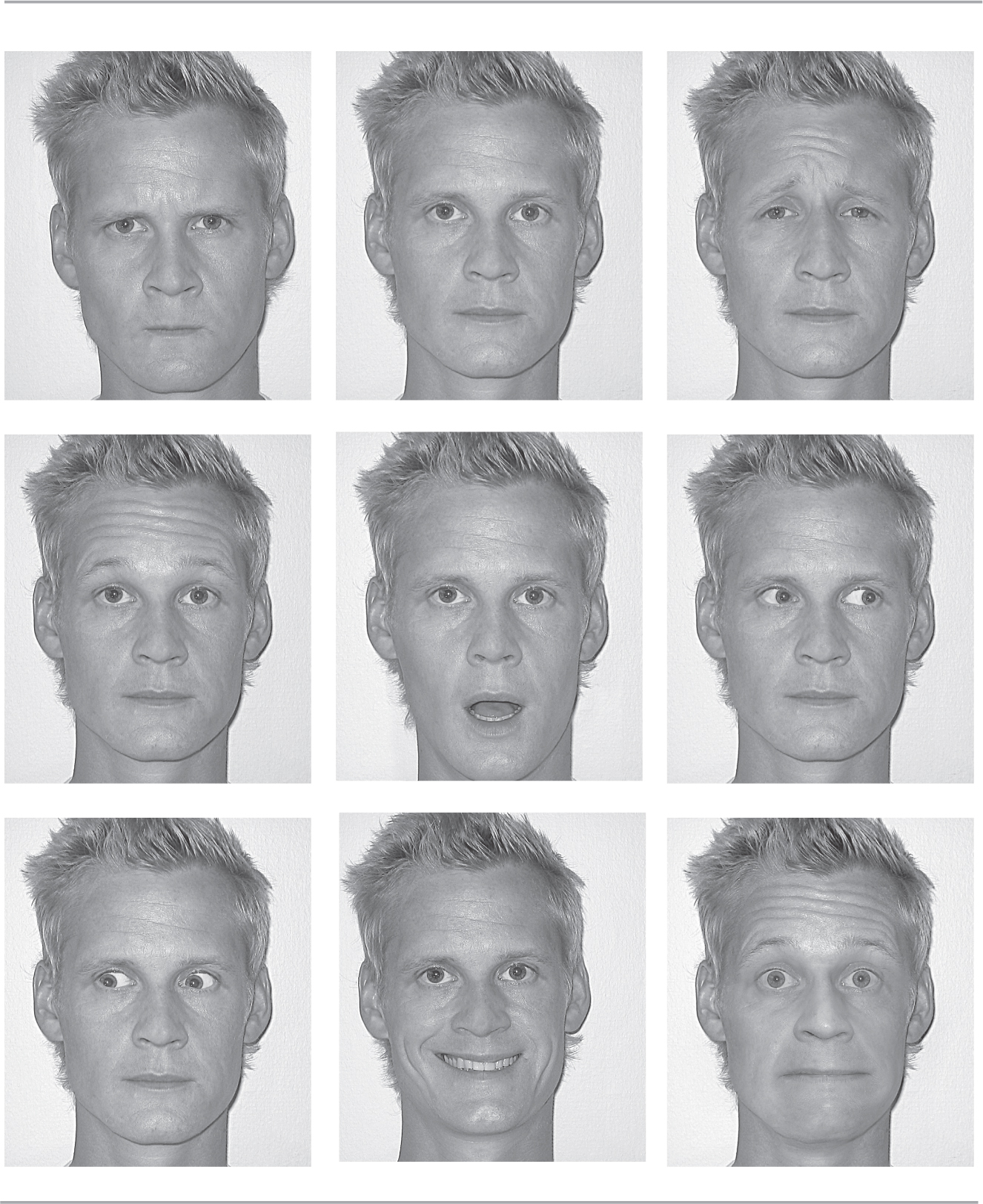The author and publisher have provided this e-book to you for your personal use only. You may not make this e-book publicly available in any way. Copyright infringement is against the law. If you believe the copy of this e-book you are reading infringes on the authors copyright, please notify the publisher at: us.macmillanusa.com/piracy.
Welcome, dear reader, to this brand-new edition of The Art of Reading Minds.
Since you and I are new to each other, a short background might be in order. My interest in human behavior and psychology started in primary school. In my attempts to socialize with the other children, I had a constant, nagging feeling that everybody else had received a manual titled How to Interact with Others, and that I had been at home the day it was handed out. I was socially awkward, to put it mildly, until seventh grade. And, of course, this meant that I got picked on a lot, which in turn meant that I started to ask myself some questions: How did my behavior differ from that of others? Why did my antagonists act as they did? What influenced our actionsand interactions?
I have spent most of my adult life trying to find the answers to these questions. I looked for pieces to the puzzle in diverse fields, such as theater, advertising, philosophy, media, psychology, and religion. As a result, I accumulated a fairly extensive understanding of human behavior, and eventually I combined it with my love of magic. I became what is referred to as a mentalist. Outside of the world of TV dramas, a mentalist is someone who combines psychology with trickery and misdirection to create the illusion that he or she is able to read minds and influence others on a supernatural level. I used my knowledge purely for entertainment, because I didnt think that anyone else was interested in the real workings of human behavior. I thought everyone already knew. Turns out I was wrongagain.
I was soon asked to give talks about body language and nonverbal communication. The original version of this book was an attempt to expand on those first talks. As I said, I thought it would interest only a handful of people. That handful turned out to be half a million readers, from all corners of the world, who have read the book in thirty-five different languages. (More than a decade and countless lectures later, I am still in something of a state of shock over this fact.)
I am immensely proud that St. Martins Press is now presenting The Art of Reading Minds to you and other readers in the United States. To celebrate this, I have completely revised and updated the book, creating a version that has never before been published. I do hope youll enjoy it.
Henrik Fexeus, Stockholm, 2019
Once Upon a Time
Id like to make something clear. I dont claim that the contents of this book are objectively true as such, at least no more true than any other subjective views of the world. These are simply theories and ideas that a lot of people put their faith in and that seem to hold water when measured and tested. But there are several competing worldviews that make precisely the same claim when it comes to representing truth, such as Christianity, Buddhism, and science. So although the contents of this book are useful tools, they are really no more than metaphors, or explanatory models, if you prefer, that describe reality as seen a certain way. Different people prefer to use different models to make sense of their realities. Some label their models as religious, others call them philosophical, and others still call them scientific. Which category the metaphors in this book ought to be placed in would depend greatly on whom youre asking. Some would consider them scientific. Others would argue that psychology and psychophysiology are not sciences. Some would criticize the models in this book and call them overly simplistic generalizations of complex phenomena, unworthy of anybodys attention. I would disagree, because these specific metaphors, these models, have proved to be unusually useful tools for understanding and influencing other people. This doesnt mean that they describe things the way they objectively really are. In the field of psychology, the ground is constantly shifting, and todays truth might turn out to be tomorrows liesonly to be regarded as true once more the day after that. The only claim I make is that if you apply the things you are about to learn, the results will be veryveryinteresting.
In which I explain what I mean by mind reading,
what it was that Descartes got wrong, and our
journey together begins.
I believe in the phenomenon of mind reading, completely and wholeheartedly. For me its no more mysterious than being able to understand what someone is saying when she is talking to me. The fact is that it might actually even be a little less mysterious than that. There is nothing particularly controversial about mind reading, as far as Im concerned. In actual fact, its completely naturalsomething we all do, all the time, without realizing it. But, of course, we do it to varying degrees of success and with more or less awareness. I believe that if we know what we are doing and how we do it, we will be able to train ourselves to do it even better. And thats the point of this book. So what is it that we actually do? What do I mean when I say that we read each others minds? What does mind reading actually mean?
To begin with, I want to explain what I dont mean. Theres something in psychology that is referred to as mind reading, and its one of the reasons why so many couples end up in therapy. This happens when one person presumes that the other person can read her mind:
If he really loves me, he should have known I didnt want to go to that party, even though I agreed to go!
Or:
He doesnt care about me, or hed have realized how I felt.
Such demands for mind reading are more like outbursts of egocentricity. Another version of this is supposing that you can read someone elses thoughts, when youre actually just projecting attitudes and values from your own mind onto hers:
Oh no, now shes going to hate me.
Or:
She must be up to somethingwhy else would she be smiling like that?
This is called Othellos mistake. None of these things are mind reading in the sense that I am talking about here. Theyre just foolish behavior.
Descartess Big Mistake
In order to understand mind reading as I am about to describe it, it is important that you first understand a different concept. The philosopher, mathematician, and scientist Ren Descartes was one of the great intellectual giants of the seventeenth century. The effects of the revolution he instigated within mathematics and Western philosophy are still being felt today. Descartes died in 1650 of pneumonia in the Royal Palace in Stockholm, where he was tutoring Queen Christina. Descartes was used to working in his warm, cozy bed, as befits a French philosopher, so the cold stone floors of the castle quite understandably finished him off once winter set in. Descartes did a great deal of good, but he also made some serious mistakes. Before he died, he introduced the notion that body and mind were separate. This was pretty much the most stupid thing he could have come up with, but Descartes had won the ear of the intelligentsia, thanks to neat sound bites like


